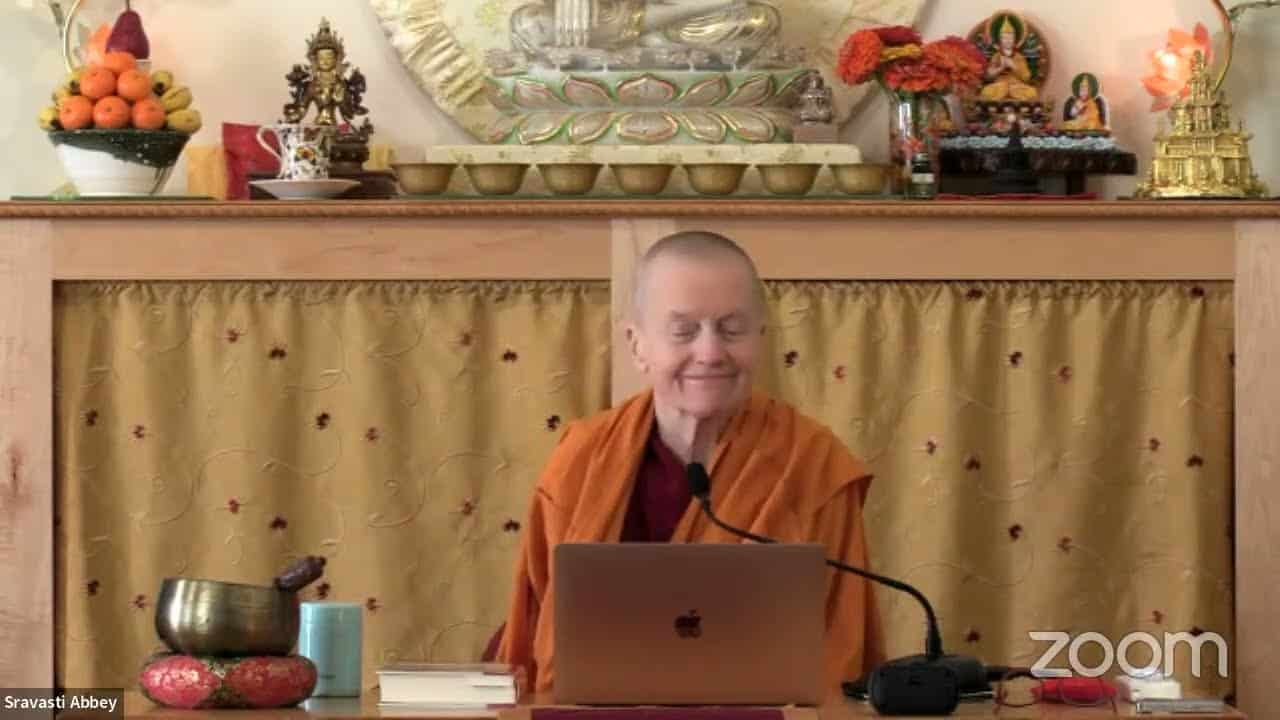Bodhisattva’s refuge and ethical conduct
24 Following in the Buddha's Footsteps
Part of an ongoing series of teachings based on the book Following in the Buddha's Footsteps, the fourth volume in The Library of Wisdom and Compassion series by His Holiness the Dalai Lama and Venerable Thubten Chodron.
- Four specific activities in relation to each of the three jewels
- Full awakening and great compassion
- Three kinds of wisdom
- Bodhisattvas and Shravakas
- Three higher trainings in fundamental vehicle, perfection vehicle, and vajrayana vehicle
- Two views about Shakyamuni Buddha’s awakening
- Three ways in which the three higher trainings are higher
- Refuge in the three jewels, understanding of selflessness, and aspiration for liberation or awakening
- Various levels of ethical code
- How keeping precepts reduces untamed states of mind and increases beneficial states of mind
- How the three higher trainings are related and builds on the next
- Mental factors of mindfulness and introspective awareness
24 Bodhisattva’s Refuge and Ethical Conduct (download)
Contemplation points
- Contemplate:
- Why are each of these so important for those aspiring towards and progressing on the bodhisattva path?
- In what ways are you cultivating these in your practice now?
- In what ways are you struggling with each of these in your practice now?
- Why does His Holiness the Dalai Lama say that living them requires an open mind and great joyous effort?
- What are the three reasons that the Buddha’s teachings on ethical conduct, concentration, and wisdom are called “higher” trainings?
- Why are all three higher trainings essential for attaining full awakening? Walk through the results if only one or two of the trainings are cultivated?
- Why are sensual enjoyments, wealth, power, social status, and praise not the purpose of life for those practicing the Buddhist path? What is the deeper purpose of this life for a practitioner?
- How do the three higher trainings build upon each other as we practice them? Why is it important to start with the practice of ethical conduct?
Venerable Thubten Chodron
Venerable Chodron emphasizes the practical application of Buddha’s teachings in our daily lives and is especially skilled at explaining them in ways easily understood and practiced by Westerners. She is well known for her warm, humorous, and lucid teachings. She was ordained as a Buddhist nun in 1977 by Kyabje Ling Rinpoche in Dharamsala, India, and in 1986 she received bhikshuni (full) ordination in Taiwan. Read her full bio.


